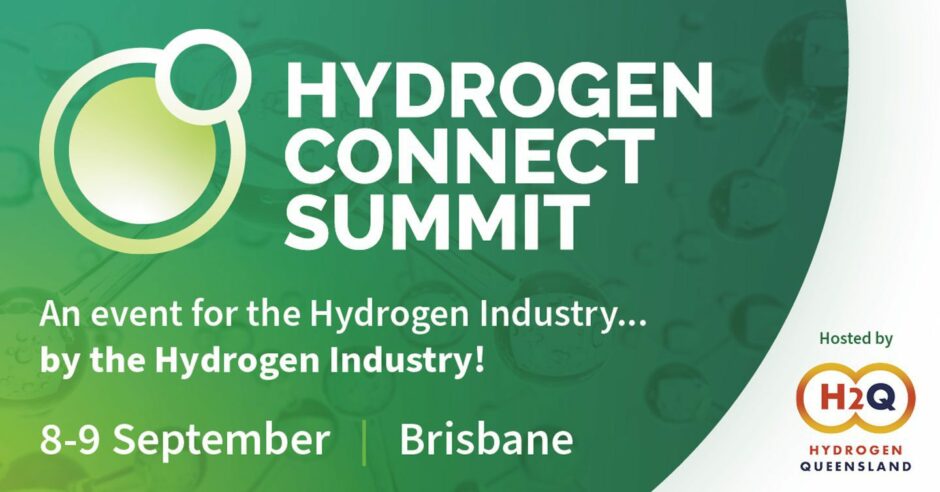
With the Australian hydrogen manufacturing and supply chain sector poised to be economically bigger than hydrogen generation and distribution, Paul Sernia is firstly, committed to this ambition, and secondly, making this hydrogen opportunity part of his vision with his recent start-up Endua.
Paul has over 20 years executive and entrepreneurial experience in high growth energy and manufacturing businesses. His previous start-up, Tritium, went public on the Nasdaq earlier this year, listing the Brisbane-based company at $1.3 billion.
Heidi Breen, CEO H2Q Queensland, interviews Paul Sernia about his past experience with the sensational Tritium clean tech start-up, and discusses his future plans for Endua. This together with his advice for start-ups to make the hydrogen vision real for more local players.
Q – Having had the great start-up experience at Tritium, what advice do you have for hydrogen manufacturing start-ups?
A – There are many challenges and resulting opportunities for hydrogen to tackle the transition to renewables, and it will require change across a broad array of industries and technologies. At Endua, we believe that using hydrogen can lead to renewables that are reliable and dependable at any time of day. Start-ups are a great way to generate new innovations but the path is not always easy or obvious. For anybody considering the hydrogen sector, I would suggest finding the biggest problem you can solve, and surrounding yourself with the right partners that can help you get the job done – building hydrogen tech is difficult and complex.
Q – Why is it important for local manufacturers to act now?
A – Twiggy Forrest said a little while back. “Change is now. And it is sudden. Will Australia be part of it, and in time to be competitive?” This is very true when it comes to hydrogen and now is the time to act. I believe that Australia can play a leading role in the global supply chain, we have done it before in other industries, but it is so much harder to do this if there are entrenched global leaders.
Q – What do local manufacturers need to do to compete?
A – Local manufacturers need to invest in R & D and we need to continue to support each other, to build a manufacturing ecosystem that can be internationally competitive with its technology, but also have enough local capability to manufacture, service and maintain those offerings.
Q – Why do companies need to support local and make opportunities available to smaller companies?
A – With the global disruptions we have been experiencing over the past few years, especially in the logistics and supply chain sectors, there is a renewed drive to ensure that we have local manufacturing that can support domestic demand. Much of this capability will come from smaller businesses and there needs to be a conscious effort to make opportunities accessible to small businesses, whilst holding them accountable to global standards. The added benefit is that it lowers our sovereign risk and keeps more profits locally.
Q – Endua is breaking new ground. Tell us about your vision and plans to serve an overlooked sector?
A – At Endua we have taken an innovative approach using hydrogen technology to deliver reliable, scalable storage that can sustain power needs for hours, days, weeks, or more. Current battery technology is only useful for a few hours of storage capacity, and without cost-effective long duration energy storage like Endua’s power banks, a future where renewables are both abundant and reliable is just not possible. And this is what we are looking to change.
Q – How does your solution deliver hydrogen energy at the right time, right place and right price?
A – We are focused on markets that already have strong drivers to decarbonise but are not well served by batteries and still rely heavily on fossil fuels – specifically microgrids and standalone power systems – where the use of diesel generators remains prevalent. Our power bank products will be deployed to power communities, commercial & industrial sites, in agricultural operations, and other on-grid and off-grid scenarios.
Q – Where are the biggest challenges?
A – We know that renewable hydrogen will play a crucial role in our transition, but we need the right technology and business models to make hydrogen power generation and storage cost-effective. There are numerous challenges, both technical and commercial, that we are tackling, but I believe that the faster we can drive adoption in the market, the sooner we can transition to a net zero future and that is what motivates the Endua team.
Paul will present his journey, future plans and solutions to overcome the obstacles to develop a commercial, demand driven, hydrogen, home grown innovation at the Hydrogen Connect Summit 2022 in September 2022. Join us and have the opportunity to meet with and chat with Paul, along with our impressive line-up of speakers and panellists.
WHAT: An official summit by the industry for the industry
WHERE: Brisbane Convention and Exhibition Centre
WHEN: 7 September: Pre-Summit Workshop and Tech-Tours:
- Lessons to Learn to Immerse Delegates in their Specific Area of Interest
8 & 9 September: Summit Keynotes, Panel Discussions and Corporate Practitioner Presentations
- DAY 1: National and State Initiatives to Accelerate a Demand Driven Hydrogen Economy in Australia to Serve Global and Domestic Markets
- DAY 2: Visionary Commitments and Industry Generation, Transmission, Storage and Distribution Best Practices, Fuelled with Opportunities for Manufacturers, Investors, Generators, Distributors and Offtakers
To find out more visit hydrogenconnect.com.au
Recommended for you
